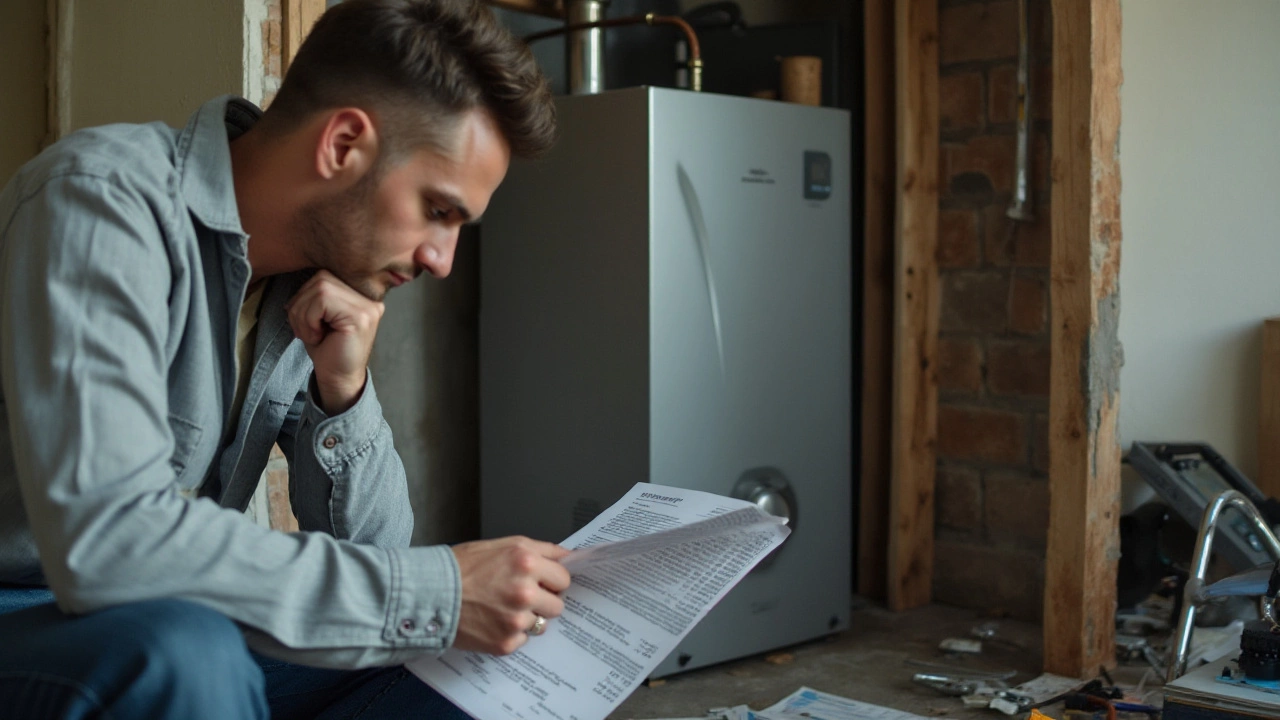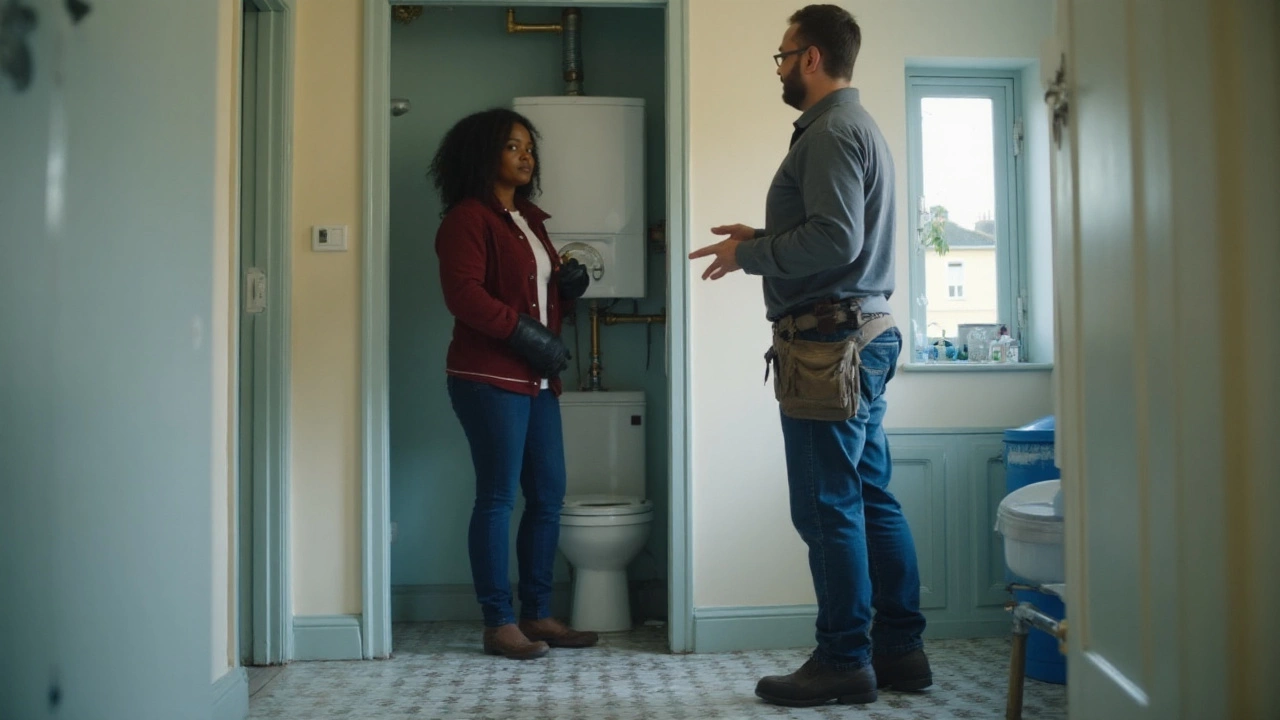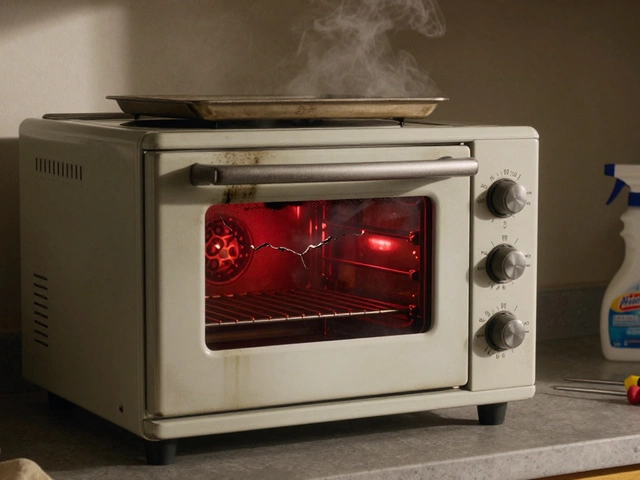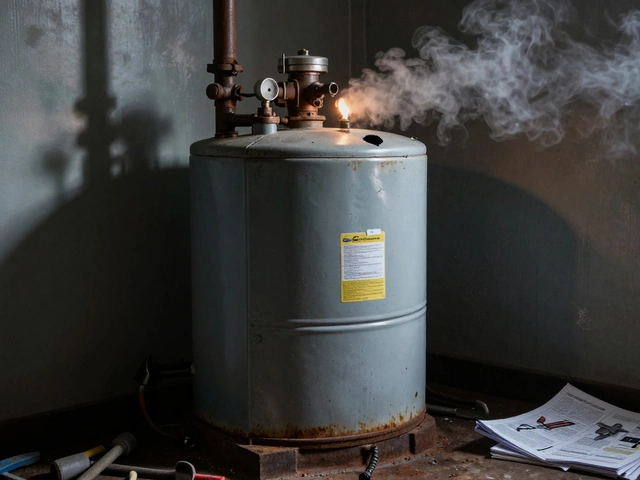Every homeowner knows that keeping a house warm during the colder months isn't just about comfort—it's essential. But when your trusty old boiler starts showing signs of giving up, the cost of a new one can be an unexpected shock.
Many factors play into why the figures can be so daunting, ranging from the complexity of modern systems to the expertise required for installation. In this article, we'll break down the reasons for these costs and offer insights into navigating this major home improvement decision without breaking the bank.
- The Components of Boiler Replacement Costs
- Technological Advances and Their Impact
- Evaluating the Need for Replacement
- Tips for Reducing Boiler Replacement Expenses
The Components of Boiler Replacement Costs
When tackling the challenge of replacing a boiler, it's crucial to understand what exactly factors into the cost. At first glance, the price tag might seem outrageous, but breaking it down helps make sense of the expense. The major components include the unit itself, installation labor, potential adaptations to your existing HVAC system, and perhaps even local permits or inspections. Each of these components deserves a closer look to fully grasp why replacing a boiler can become a hefty investment.
The most obvious cost driver is, of course, the new boiler unit. Given the wide variety of models available, from standard efficiency boilers to condensing units, prices can vary greatly. A high-efficiency boiler, while more expensive upfront, often leads to significant savings on heating bills in the long run. Many homeowners are also enticed by the energy rebates offered for eco-friendly models, which can soften the financial blow. However, the initial outlay can still be steep. Prices for the units alone can range from a few hundred dollars to several thousand, depending on the brand and efficiency ratings.
Labor costs don't lag far behind as a significant component of the total expenditure. Installing a boiler isn’t a task for just anyone; it requires skilled professionals who understand the intricacies involved. The labor, often making up a large chunk of the total, involves removing the old unit, connecting the new boiler, and testing to ensure everything runs smoothly. According to the Energy Saving Trust, a reliable source on energy conservation, "Installation costs can account for up to 50% of the total expense." The expertise and time demanded by this process naturally make it expensive, especially if complications arise that necessitate additional work.
Another often overlooked aspect is the potential need to adapt or upgrade your existing heating infrastructure. This could involve anything from modifying your HVAC system to accommodate the new unit's requirements to upgrading pipes or radiators to ensure efficient heat distribution. Each modification comes with its cost, and it’s not uncommon to encounter surprises once the work is underway. It's these surprises that frequently contribute to the spiraling expenses that catch homeowners off guard, underscoring the importance of comprehensive initial assessments by trusted professionals.
Moreover, let's not forget about the obligatory paperwork that often accompanies significant home improvements. Depending on your location, permits might be necessary before you can replace a boiler. Securing these permits requires time and usually a fee. Additionally, once the installation is complete, your local authorities might insist on an inspection to ensure compliance with safety standards. Though these costs might not be exorbitant individually, they do add up, pushing the total replacement cost even higher.
Taking into account all these factors, it's no wonder why boiler replacement costs are reported to be among the more expensive home improvement projects. Clarity is essential. Homeowners benefit from understanding these elements, allowing them to plan and budget accordingly. This breakdown not only provides insight but also offers a pathway to mitigating expenses, whether through strategic planning, choosing energy-efficient models, or leveraging available rebates and incentives.
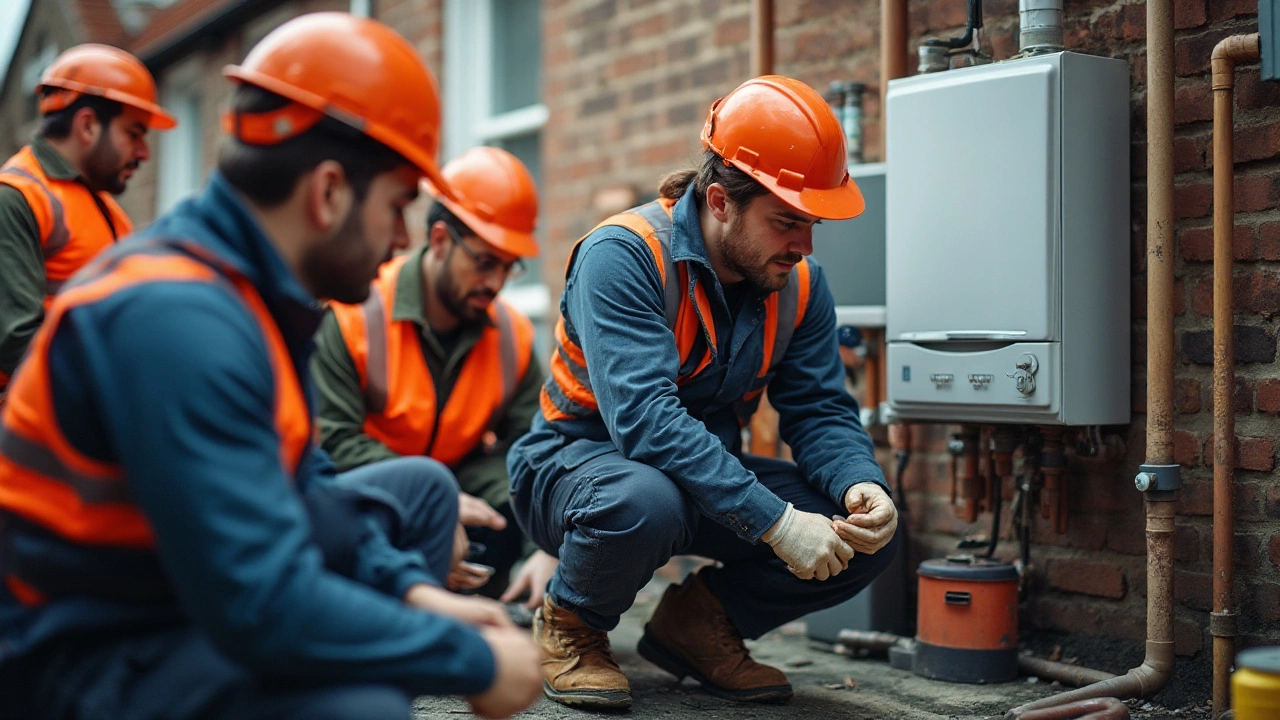
Technological Advances and Their Impact
In the realm of boiler replacement, the integration of modern technology has transformed the landscape significantly. It's not just about heating water to keep your radiators warm anymore. Today's boiler replacement options are peppered with innovations aimed at improving efficiency, reducing emissions, and enhancing user experience. At the heart of these advancements is the shift towards condensing technology, which has become a standard in many new systems. Condensing boilers are designed to capture some of the heat that would escape through the flue of a conventional boiler, converting it into additional usable energy.
The digital age has also ushered in the era of smart boilers. These systems can be connected to home automation setups, allowing homeowners to control their heating remotely through apps. This synchronization with the 'Internet of Things' not only makes for convenient operation but can also lead to significant energy and cost savings. With smart systems, you can program your boiler to heat your home at optimal times, cutting down on wasted energy when no one is home. A report by the Department of Energy suggests that households can save up to 10% on heating bills annually with smart thermostats, particularly when combined with modern boiler systems.
"The newest technologies in home heating systems allow homeowners not only to reduce their carbon footprint but also to enjoy greater control and insight into their energy usage," notes HVAC specialist Nancy Collins from the Institute of Climate Innovations.
Another fascinating development in this space is the use of renewable energy sources within the HVAC system. Some modern boilers are now compatible with solar thermal systems, providing a sustainable option that taps into naturally sourced energy. This integration signifies a move towards greener solutions, aligning with global efforts to cut down on fossil fuel use and reduce greenhouse emissions. While the upfront costs of these systems can be higher, the long-term benefits—both monetary and environmental—are compelling. Not to mention, various government incentives and rebates make it more feasible for homeowners to adopt these eco-friendly systems.
Manufacturers have also begun to focus more on the environmental impact of their products. With the push for greener homes, boilers are being engineered to surpass new regulatory standards, ensuring they deliver on both performance and sustainability. For example, modern models emphasize reduced nitrogen oxide emissions, a common byproduct of old boiler systems known to contribute to air pollution. In some European countries, there are stringent guidelines mandating these lower NOx levels, pushing manufacturers to innovate further.
A noteworthy mention is the use of augmented reality (AR) in the installation and maintenance of these advanced systems. With AR, technicians can visualize the inner workings of a boiler without dismantling it, streamlining the process of diagnosing and repairing systems. This technology is not just enhancing accuracy but is also cutting down on labor costs—a crucial factor in home improvement projects where expenses can spiral out of control. As these technological trends continue to evolve, they promise to redefine the way we perceive boiler replacements, turning necessary upgrades into opportunities for enhancing the comfort and efficiency of our homes.

Evaluating the Need for Replacement
Facing the decision of whether to repair or replace an aging boiler is a conundrum that many homeowners encounter sooner or later. A few key indicators can guide you in evaluating whether it’s time to consider a boiler replacement. Firstly, consider the age of your boiler. Boilers have an average lifespan of around 15 years, provided they have received regular maintenance. If your boiler is nearing or has surpassed this age, you might be better off replacing it rather than funneling money into costly repairs. It's essential to think pragmatically about repair expenses; frequent breakdowns and increasing energy bills are significant red flags that signal inefficiency. Over time, wear and tear can degrade efficiency, leading to higher operational costs.
It's also important to weigh the cost of potential repairs against the price of a new boiler. If repair costs amass to about half of a new unit's price, applying that money towards a more efficient and up-to-date system might make more sense. Modern boilers offer remarkable energy savings features, which can significantly reduce monthly heating bills. Insulating your home better and incorporating smart thermostats can further augment these savings, easing the initial investment's financial impact over time. A reliable quote, gathered from multiple reputable heating contractors, can offer a candid view of the financial canvas you’re working with.
Another crucial factor to consider is safety. Older boilers are more prone to leaks, making them potential hazards that could risk your home and your family’s well-being. A modern HVAC system is less likely to face such issues due to advanced safety technology. A professional assessment from a certified technician can be instrumental if there's uncertainty about where you stand. Often these evaluations can provide a detailed outlook on the current health of your system and more clarity on the best way forward. Emergencies, especially during freezing winter months, can cause undue stress, which makes planning and assessment a prudent approach.
According to a recent study by the U.S. Department of Energy, investing in a more efficient system could ultimately save homeowners up to 30% on their annual heating costs, making it a beneficial decision in the long run.
When making your decision, don’t disregard rebates or incentives available through local government programs or energy providers aiming to promote energy efficiency. These can significantly offset the upfront costs that often make people hesitate. By thoroughly evaluating these factors, you can make an informed decision on whether investing in a new boiler could translate into long-term savings and enhanced comfort. Doing so not only secures peace of mind but also aligns with sustainable living principles that benefit our environment.
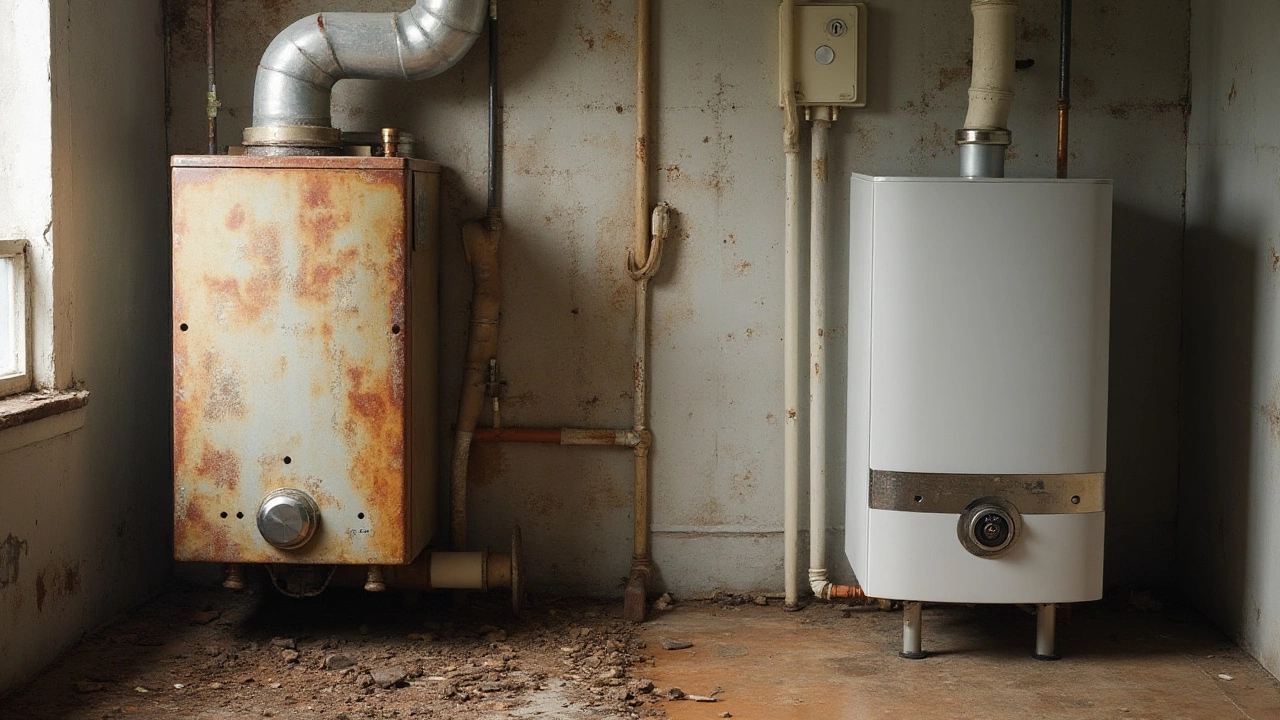
Tips for Reducing Boiler Replacement Expenses
Finding ways to cut down on those daunting boiler replacement costs can be quite a challenge, but it’s not impossible. One of the most effective ways to start is by doing thorough research before any purchase. Take the time to understand the different types of boilers on the market today. Knowing the difference between a gas, oil, or electric model—and all their energy efficiency ratings—can lead you to the most cost-effective solution for your home. Each type of boiler presents unique advantages and potential savings depending on your location, existing infrastructure, and energy costs. Websites that aggregate customer reviews and professional evaluations can provide a clear picture of what to expect from each model.
Another practical tip is to seek multiple quotes from different contractors. Prices can vary significantly based on the region, the complexity of the installation, and the specific materials required. Don't hesitate to ask questions about what's included in the quoted price and to clarify any additional fees. Be sure that each quote includes clear details about warranties and aftercare services. In some cases, local government or utility company rebates might be available to those opting for more energy-efficient boiler models. It's worth looking into these incentives, as they could considerably decrease the upfront costs. According to a report from the U.S. Department of Energy, upgrading to a high-efficiency boiler can reduce home heating expenses by 20%, which effectively pays off over time.
Additionally, proper maintenance of your current boiler can also delay the need for replacement and ultimately save costs. Regularly scheduling a professional to inspect and service your boiler ensures it runs efficiently and safely for as long as possible. If your old boiler is beyond repair and you must replace it, consider the long-term savings offered by a high-efficiency model over cheaper, less efficient options. Investing in such units can significantly lower your annual heating bills, compensating for their higher initial cost over time.
"Replace an old boiler with a modern, high-efficiency model and you could save up to 30% on heating bills. Though replacement can be costly, energy savings make it a worthwhile investment," says Clarice Duncan, an HVAC industry expert.
Finally, don't overlook the opportunity to negotiate financing options with your contractor. Many companies offer financing plans or can direct you to third-party lenders who specialize in home improvement loans. By planning carefully, checking potential savings, and executing the right strategy, you can greatly reduce the burden of replacing your boiler, while optimizing your home's comfort and energy use.
